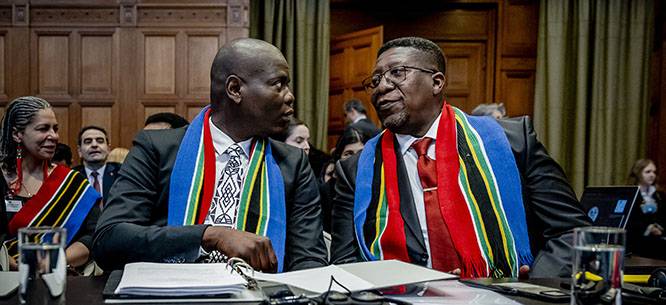Over the past few months, the accusation that Israel is committing genocide against Palestinians in Gaza has rapidly gained traction. What began as a protest chant has now become the subject of a formal legal case brought by South Africa against Israel in the International Court of Justice. This marks a major shift in how Western institutions and experts talk about violence against Palestinians.
The evidence presented for genocide includes statements by Israeli officials threatening to wipe out parts of Gaza, as well as systematic policies that have led to public health catastrophes. The legal case also argues that the United States is complicit due to its unwavering support for Israel.
For a long time, debates over genocide accusations have been tightly controlled, with only some groups considered legitimate users of the term. The Holocaust has been treated as the paradigm, allowing Israel and the U.S. to present themselves as moral authorities. Additionally, genocide has been framed as the supreme evil, meaning any action could be justified to prevent it.
As a result, accusations not sanctioned by Israel and the West have generally been dismissed or punished. People making such accusations have risked their careers and reputations.
However, growing protests over the past months have eroded these unofficial rules about how "genocide" gets used. Congresswoman Rashida Tlaib faced little backlash for a video accusing President Biden of supporting Palestinian genocide. The South Africa legal case is yet another sign that old tactics for policing genocide discourse are losing power.
Some commentators have responded by questioning whether the term "genocide" should still be used at all. However, for Palestinians and their allies invoking genocide, this is not about debating definitions. It is about directly confronting Western colonial violence through existing legal mechanisms and public advocacy.
Rather than misusing or cheapening the term, these activists are reclaiming genocide as an anticolonial concept linked to struggles for justice and self-determination. They aim to hold the powerful accountable and democratize who gets to raise credible charges of genocide. This stands to shift discussions of mass violence against oppressed groups more broadly.
The case around Israel and Gaza has demonstrated the ability of social movements to open up debates typically closed off by politics and power. It reflects both the continued importance but also limitations of using legal tools. Ultimately, accusations of genocide will mean little without action towards Palestinian liberation. But the space created so far for new discourse signals promising change.




No comments yet
Be the first to share your thoughts!